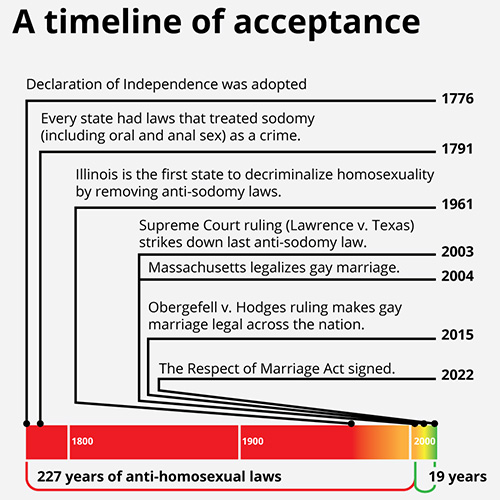LGBTQIA+ travel accessibility
There are LGBTQIA+ friends, colleagues, and allies throughout the world. However, cultural understanding of gender identity and sexuality does vary from country to country.
Up until the 1960s, most homosexual acts were still largely illegal in most of the United States. The freedom to explore other lifestyles is a relatively new phenomenon in the history of our nation. While it may be common to see Pride parades every June nowadays, it took a riot at the Stonewall Inn to inspire the first Pride parades in 1970. A nationally recognized right to marriage in the United States has only been signed in recent years.
Before you choose your program, please recognize that many nations — including the United States —are still addressing discriminatory policies. It’s important to be mindful of your choices when presenting yourself to others. Our Self Assessment page offers questions to consider and evaluate. You are also welcome to take some advice from recent study abroad alums who took the brave jump to express themselves in their host countries.
 Celebrating Pride Abroad - Haley
Celebrating Pride Abroad - Haley Celebrating Pride Abroad - Christian
Celebrating Pride Abroad - Christian Celebrating Pride Abroad - Jesse
Celebrating Pride Abroad - JesseIt’s helpful to make the right connections as you plan your study abroad and take the safest path for creating a more inclusive world. If you’re focused on going abroad, below are some additional links to make your study abroad journey affordable, accessible, and well-informed.
Talk to an Enrollment Specialist to help you choose the right program for you. We have several scholarships dedicated to making study abroad possible for students from underrepresented communities.


